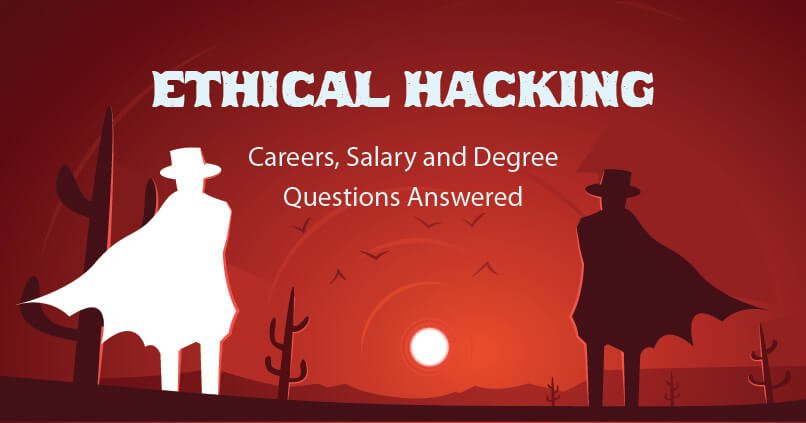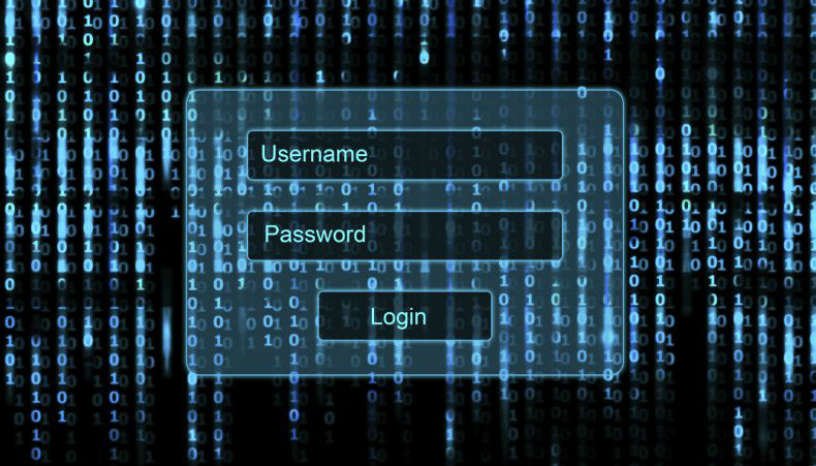Is hacking ever considered a good thing? You might be surprised to learn that hacking, when done ethically, can play a crucial role in enhancing cybersecurity measures. Ethical hacking has increased in popularity, especially due to updated policies from the U.S. Department of Justice that guarantees those conducting “good faith security research” — in other words, ethical hacking — cannot be prosecuted.
Ethical hackers, also known as white hat hackers, are an increasingly important position in the cybersecurity landscape, often using their skills and knowledge to help protect key digital information by assessing an organization’s vulnerabilities and risk.
This guide will explore the details of the ethical hacker position, including the skills, education and certifications needed to succeed in the field and the various career opportunities available for anyone interested in pursuing this type of important role, which InfoSec describes as a “legitimate and fast-growing profession.”
What Is Ethical Hacking?
Ethical hacking involves identifying vulnerabilities in an organization’s applications, systems or infrastructure that could be exploited by attackers. Ethical hackers legally infiltrate these systems to proactively detect and address weak points and potential security risks, thereby preventing cyberattacks and security breaches.
What Do Ethical Hackers Do?
In short, ethical hackers are paid to try to break into computer systems. It is often said that, to excel at their jobs, these professionals must think like a malicious hacker in order to block intruders from illegally infiltrating networks and systems to engage in criminal activity.
Generally speaking, and depending on the needs of their employers, ethical hackers are engaged in such activities as penetration testing, vulnerability assessments and a range of other strategies intended to keep their organizations safe from attacks of all kinds. This can include:
- Preventing malicious attackers from accessing and stealing private data
- Discovering vulnerabilities in their employer’s networks and systems
- Helping to put defenses in place to secure or “harden” those weak spots
- Working to put in place secure networks to deter security breaches
- Helping their organization earn the trust of customers and investors by safeguarding information and assets
For private-sector ethical hackers, this usually means protecting company assets; for those employed by the government, the work will often involve defending national security by protecting systems and secrets from terrorists or hostile nations.
[RELATED] Cybersecurity Jobs Report [Stats, Salaries, Insights, Infographic] >>
Types of Hackers
Here is a breakdown of the different types of hackers:
White Hat Hackers (or Authorized Hackers)
White hat hackers are cybersecurity professionals who are hired to find vulnerabilities in software, hardware and networks that may be susceptible to attacks. They report on those vulnerabilities and often play a role in securing such weak spots. White hat hackers use many of the same methods, tools and techniques as their black hat counterparts.
Black Hat Hackers (or Unauthorized Hackers)
Black hat hackers illegally break into victims’ networks to disrupt systems, steal or destroy data, conduct espionage or sometimes to engage in some malicious mischief just to prove they can. Black hat hackers typically have extensive knowledge about circumventing security protocols and cracking into computer networks. Some are also adept at writing malware used to infiltrate systems.
Gray Hat Hackers
The gray hat hacker combines key traits of both white and black hackers; for example, probing a system for vulnerabilities without malicious intent but also without the owner’s knowledge or permission. If they find vulnerabilities, they would likely report them to the owner, along with a request for a fee to fix the issue. If the owner does not respond or comply, then the gray hat activity can get a little darker.
Those are the big three, but there are also lesser-known designations, as well:
Green-Hat Hackers
Green hat hacker typically describes an amateur, novice or newcomer — someone who is eager and intrigued about hacking but lacks advanced technical skills and education. Many in this category are interested in expanding their skills and becoming more deeply involved in the world of hacking.
Blue Hat Hackers
The term blue hat hackers can apply to two very different individuals. One is an amateur hacker who is motivated by seeking revenge. The other, typically styled “BlueHat,” refers to a security professional who is contracted by a company to inspect software for vulnerabilities (such as Microsoft and Windows).
Red Hat Hackers
The red-hat hacker is the sworn enemy of the black-hat — often characterized as vigilantes because of their reputation for going after the lawbreakers. Red hats seek out malicious hackers, but not just to report them; they are known for using sophisticated techniques to shut them down or even to disrupt or destroy their computers.
Hacktivists
Hacktivists are hackers-activists who are politically motivated and hack into the network of a government agency, multinational corporation or other entity to further their goals.
Script Kiddies
“Script kiddie” is slang for an inexperienced hacker who relies on pre-existing scripts and software to execute attacks.
Gaming Hackers
Gaming hackers exploit video game tactics,trends and vulnerabilities to trick online players into disclosing personal information such as payment details or login credentials.
Elite Hackers
These elite hackers are among the best in the field, possessing the remarkable ability to identify and create new security breaches and attacks.
Ethical Hacker vs. Penetration Tester
Though the positions are closely related, there are some distinct differences between ethical hackers and penetration testers.
Ethical hackers may have a variety of responsibilities, including vulnerability assessments, social engineering and penetration testing. Penetration testers, also known as pen testers, try to exploit vulnerabilities in a specific way; their main goal is to test an organization’s cybersecurity measures.
Penetration tester positions may also require more specific certifications, such as the Certified Penetration Testing Professional.
How Ethical Hacking Helps Cybersecurity
The cybercrime epidemic is an increasingly expensive one that requires multiple layers of solutions. No system is impenetrable, and many have vulnerabilities or back-end points of access that developers or administrators may not know about — leaving them vulnerable to hackers. Ethical hacking is considered essential both for companies looking to safeguard their information and assets, and for governments looking to defend people and shared infrastructure from wrongdoers.
Stats About the Cost of Data Breaches
With trillions of dollars at stake, data breaches are so common that the ever-growing list of high-profile victims is filled with well-known names across all sectors, including:
- Major corporations: Target, CVS, Yahoo, Microsoft
- Restaurant chains: Wendy’s, Panera, Panda Express
- Financial firms: Citigroup, Equifax, Capital One, JPMorgan ChSE
- Higher education: UC Berkeley, Johns Hopkins University, University of Michigan, Mount Saint Mary College
- Social media platforms: Facebook, LinkedIn, Instagram, Snapchat
- Government agencies: NSA, IRS, the Department of Energy
- Healthcare facilities and organizations: Trinity Health, Anthem, Inc., Community Health Systems, MCNA Dental
- Entertainment and media companies: Ticketmaster, Paramount Pictures, the Washington Post, National Amusements
- Hospitality: MGM Resorts, Motel One, Caesars Entertainment, Omni Hotels
In 2023, the global average cost of a data breach was $4.45 million, which is a 15% increase over three years, according to IBM.
Here are some additional numbers to keep in mind:
- According to the HIPAA Journal, there are so many more breaches in healthcare because that data is the most valuable on the black market. An average of 1.99 healthcare data breaches of 500 or more records were reported every day in 2023.
- More than 354 million people were affected by data breaches in 2023.
- More than 1 out of 3 organizations say their existing security tools weren’t able to detect breaches when they occurred.
Demand for Ethical Hackers
Amid the ongoing wave of cybercrime, it is easy to see why demand is so high for cybersecurity professionals in general and ethical hackers, in particular. According to BuiltIn, the top companies looking for ethical hackers include IBM, Google, Synack, Raxis and VikingCloud, but the list of companies looking to employ skilled professionals is much longer.
A recent search for “ethical hacking” jobs on LinkedIn reveals several thousand positions at a range of well-known organizations, including Bank of America, the National Football League, Freddie Mac, Raytheon, GEICO, Campbell’s, Garmin, JetBlue, Citi and more.
Common Careers in Ethical Hacking
Common job titles within the field of ethical hacking include:
- Penetration Tester
- Vulnerability Assessor
- Information Security Analyst
- Security Analyst
- Certified Ethical Hacker (CEH)
- Ethical Hacker
- Security Consultant
- Security Engineer/Architect
- Information Security Manager
[RELATED] Penetration Testers on the Front Lines of Cyber Security >>
Key Skills Required for Ethical Hackers
The skills required for such jobs will vary greatly depending on the position and the organization. To earn the highly sought-after Certified Ethical Hacker credential, the EC-Council, which administers the certification program, lists the following skills as needed to pass the exam:
- Strong knowledge of networking and computer systems
- Understanding of current security protocols for regularly used operating systems, such as Linux, Windows and Mac
- Ability to hack into network or systems, with permission, to assess vulnerabilities
- Able to perform preventive, corrective and protective countermeasures against malicious attempts
- Should be proficient in identifying and cracking multiple types of passwords
- Know the phases and methodologies of ethical hacking
- Should know how to erase digital evidence of network and system intrusions
- Understand encryption techniques and cryptography
- Adhere to the code of ethics and professional conduct
- Should be aware of common cyberattack techniques, such as phishing, social engineering, trojans, insider attacks, identity thefts, etc. and should know how to undertake appropriate evasion techniques and countermeasures.
The EC-Council also suggests that aspiring ethical hackers be proficient in multiple coding languages such as Python, SQL, PHP, Java, C and C++.
Ethical Hacker Salary Data
Salary estimates for cybersecurity positions related to ethical hacking vary significantly based on the methodologies used and because figures are often adjusted in real time based on changing data. Here are some recent ethical hacker salary snapshots from leading online employment and cybersecurity websites:
- $119,895 – ZipRecruiter (Penetration tester)
- $131,123 – Cyberseek (Penetration and vulnerability tester)
- $110,184 – Salary.com (Ethical hacker)
In addition, another type of ethical hacker — freelance “bug bounty” hunters — can earn large paychecks. Private companies and government agencies both augment their security systems by inviting freelance hackers to hunt down bugs that threaten their overall security.
How to Become an Ethical Hacker
Education and experience are key. A strong background or bachelor’s degree in computer science is extremely helpful. Early career experience can be gained by working in network support, network engineering or in any number of positions related to information security.
It’s also important to stay on top of the latest cybersecurity trends and news. Join cybersecurity-related networks and associations and consider participating in relevant conferences such as Black Hat and DefCon.
To gain additional experience, consider freelance work, which would allow you to create a portfolio. Continuous education such as a bootcamp or master’s degree program can also provide additional industry knowledge and skills.
Ethical Hacker Certifications
Professional certifications also play a key role in the ethical hacker employment landscape. The CompTIA Security+ certification is often the first one cybersecurity professionals earn; the EC-Council’s Certified Ethical Hacker (C|EH) credential is sought after by many employers hiring ethical hackers. Other popular cybersecurity certifications include:
- Certified Information Systems Security Professional (CISSP)
- Certified Information Security Manager (CISM)
- Certified Information Systems Auditor (CISA)
- SANS/GIAC Certification
Education: How a Master’s Degree Can Help
Some cybersecurity employers require or prefer a master’s degree, but advanced education is not called for in all roles. However, earning an advanced degree is attractive to many current and aspiring cybersecurity professionals for important reasons. For example, earning your degree:
- Equips you with comprehensive knowledge and practical skills
- Positions you, in some cases, to demonstrate work experience in the form of in-depth exercises and hands-on lab work that closely simulates real-world scenarios
- Gives you a strong competitive advantage in the job market
The University of San Diego, a highly regarded cybersecurity industry thought leader and education provider, offers a 100% online Master of Science in Cyber Security Operations and Leadership and a Master of Science in Cyber Security Engineering degree (online or on-campus) that can be completed in as little as 20 months.
What Are Some Other Top Cybersecurity Careers?
Cybersecurity is a fast-growing, high-paying field with a range of different types of job openings. Which role might be ideal for you? Take a moment to explore some of the other exciting careers in cybersecurity:
Chief Information Security Officer (CISO)
Frequently Asked Questions
Citations
U.S. Department of Justice, Office of Public Affairs, “Department of Justice Announces New Policy for Charging Cases under the Computer Fraud and Abuse Act, https://www.justice.gov/opa/pr/department-justice-announces-new-policy-charging-cases-under-computer-fraud-and-abuse-act.”
InfoSec, “The rise of ethical hacking: Protecting businesses in 2024, https://www.infosecinstitute.com/resources/hacking/rise-ethical-hacking/.”
Panda Security, “14 Types of Hackers to Watch Out For, https://www.pandasecurity.com/en/mediacenter/14-types-of-hackers-to-watch-out-for/.”
Check Point, “What is Hacktivism?, https://www.checkpoint.com/cyber-hub/threat-prevention/what-is-hacktivism/.”
Norton, “15 types of hackers + hacking protection tips for 2024, https://us.norton.com/blog/emerging-threats/types-of-hackers.”
University of San Diego, “Penetration Testers on the Front Lines of Cyber Security, https://onlinedegrees.sandiego.edu/vulnerability-and-penetration-testing/.”
EC-Council, “Introduction to Certified Penetration Testing (C|PENT), https://www.eccouncil.org/train-certify/certified-penetration-testing-professional-cpent/.”
Fortinet, “What Is a Data Breach?, https://www.fortinet.com/resources/cyberglossary/data-breach.”
IBM, “Cost of a Data Breach Report 2023, https://www.ibm.com/reports/data-breach.”
Forbes, “Cybersecurity Stats: Facts And Figures You Should Know, https://www.forbes.com/advisor/education/it-and-tech/cybersecurity-statistics/.”
Help Net Security, “1 out of 3 breaches go undetected, https://www.helpnetsecurity.com/2024/06/24/detecting-breaches-struggle-in-organizations/.”
The HIPAA Journal, “Healthcare Data Breach Statistics, https://www.hipaajournal.com/healthcare-data-breach-statistics/.”
BuiltIn, “Top 5 Companies Hiring Ethical Hackers, https://builtin.com/articles/companies-hiring-ethical-hackers.”
University of San Diego, “How to Become a Security Consultant [Career Guide], https://onlinedegrees.sandiego.edu/how-to-become-a-security-consultant-career-guide/.”
University of San Diego, “Cybersecurity Architect [Career Outlook, Job Duties, Salaries], https://onlinedegrees.sandiego.edu/cyber-security-architect/.”
EC-Council, “97% Choose (C|EH) for Career Growth, https://www.eccouncil.org/train-certify/certified-ethical-hacker-ceh-v12/.”
University of San Diego, “A Complete Guide to Cybersecurity Coding, https://onlinedegrees.sandiego.edu/cyber-security-coding/.”
ZipRecruiter, “Penetration Tester Salary, https://www.ziprecruiter.com/Salaries/Penetration-Tester-Salary.”
Cyberseek, “Cybersecurity Career Pathway, https://www.cyberseek.org/pathway.html.”
Salary.com, “Ethical Hacker Salary in the United States, https://www.salary.com/research/salary/posting/ethical-hacker-salary“
Dark Reading, “White-Hat Bug Bounty Programs Draw Inspiration from the Old West, https://www.darkreading.com/application-security/white-hat-bug-bounty-programs-draw-inspiration-from-the-old-west.”
University of San Diego, “Cybersecurity Bootcamps vs. Degrees, https://onlinedegrees.sandiego.edu/cybersecurity-bootcamp-vs-degree/.”
University of San Diego, “Top Cyber Security Certifications: Which Ones Are Right for You?, https://onlinedegrees.sandiego.edu/is-a-cyber-security-certification-right-for-you/.”
University of San Diego, “Is the CEH Certificate Worth It? [12 Points to Consider], https://onlinedegrees.sandiego.edu/ceh-certification/.”
University of San Diego, “Is the CISSP Certification Worth It?, https://onlinedegrees.sandiego.edu/blog-cissp-certification/.”
University of San Diego, “Getting Your CISA Certification [10 Points to Consider], https://onlinedegrees.sandiego.edu/cisa-certification/.”
University of San Diego, “10 Reasons Why a Cyber Security Degree is Worth It, https://onlinedegrees.sandiego.edu/10-reasons-to-get-your-masters-degree-in-cyber-security/.”
University of San Diego, “How to Become a Network Administrator [Career & Salary Guide]“https://onlinedegrees.sandiego.edu/network-administrator-career-salary-guide/.”
University of San Diego, “Cybersecurity Holds Opportunity for Systems Administrators, https://onlinedegrees.sandiego.edu/systems-administrator/.”
University of San Diego, “How to Become a Cybersecurity Analyst: 7-Step Career Guide [+ Salary], https://onlinedegrees.sandiego.edu/cybersecurity-analyst-career-guide/.”
University of San Diego, “How to Become a Security Auditor [+ Career & Salary Guide], https://onlinedegrees.sandiego.edu/cyber-security-auditor-career-guide/.”
University of San Diego, “How to Become a Cybersecurity Specialist [+ Career & Salary Guide], https://onlinedegrees.sandiego.edu/cyber-security-specialist-career-guide/.”
University of San Diego, “Is a Career as a Highly Paid Cybersecurity Consultant Right for You?, https://onlinedegrees.sandiego.edu/how-to-become-cybersecurity-consultant/.”
University of San Diego, “What is a Chief Security Officer? — High Demand, ‘Skyrocketing’ Pay for CSOs, https://onlinedegrees.sandiego.edu/what-is-a-chief-security-officer-high-demand-skyrocketing-pay-for-csos/.”
KnowledgeHut, “Top 18 Most Famous Ethical Hackers in the World, https://www.knowledgehut.com/blog/security/most-famous-ethical-hackers.”
KnowBe4, “Who Is Kevin Mitnick?, https://www.knowbe4.com/products/who-is-kevin-mitnick/.”





